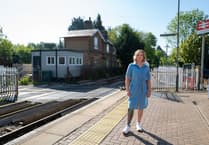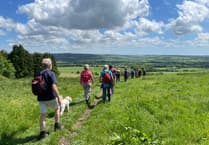RACISM and prejudice in schools is being more widely reported in Hampshire than ever before.
Following the death of George Floyd in 2020, Basingstoke MP Maria Miller launched an inquiry into the lived experiences of the black, Asian and minority ethnic (BAME) community in Basingstoke.
Her report noted that schools were ‘often weak’ in handling racist abuse, dismissing verbal abuse as insignificant and making assumptions of students based on race.
Evidence was also found of ethnic minorities not being represented in everyday school life, with school library books generally only having white protagonists, and textbooks only having white pupils in case studies and exam questions.
Since then, a cultural revolution has been undertaken in schools across Hampshire, making tackling racism much more prominent on the agenda.
Now, schools are more accurately reporting incidents of racial abuse and prejudice – and have been equipped with the tools to better handle them too.
Catherine Redgrave, school improvement manager from the Basingstoke and Deane Inclusion and Diversity Partnership, gave a presentation to Hampshire County Council on Wednesday, March 3.
She said: “Some of the stories I have heard are really distressing, so we have to tackle it.
“We had one BAME headteacher who was asked on the school gates if he was a caretaker… he was in a suit, greeting parents as they came to drop-off their children. Another child was told they should be good at running, based on the colour of their skin.
“Collectively we have to become allies for other people, whether they are staff or students.”
Since the inquiry began, schools across Hampshire have gone from not reporting any incidents of racism or discrimination to highlighting multiple cases.
Schools in Gosport, Fareham, Havant, Basingstoke, Winchester and the Isle of Wight have all adopted this practice.
All prejudicial language and incidents are being recorded, regardless of race, gender, religion or sexual orientation.
Ms Redgrave explained that this isn’t necessarily a bad thing, as it simply means racism is being given the attention it needs.
“It’s obviously not a good figure but it shows schools are understanding and noticing it when it happens,” she said.
“These conversations are starting to take place and that’s a really important step.”
For schools, the focus has also been on not only supporting victims of racist abuse, but in helping those responsible to see the error of their ways.
Work carried out on this initiative has found that pupils challenging one another is the best way of handling the situation – but education bosses acknowledge this puts extra pressure on the students.
Liberal Democrat representative for Basingstoke South East, Cllr Gavin James, said: “We have to encourage children to speak to each other about this – to make mistakes and learn from it.
“We don’t want kids to not talk to each other about it because they need to understand one another’s cultures and feelings. That means the role of teaching staff should be to inform, not to punish.”
Ms Redgrave said: “There is a fear and anxiety about saying the wrong thing, or accidentally offending people.
“We need to be forgiving when people make mistakes, but educate one another to ensure everyone feels heard.”





Comments
This article has no comments yet. Be the first to leave a comment.